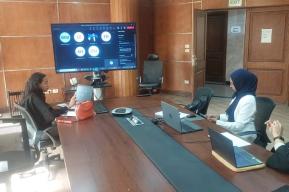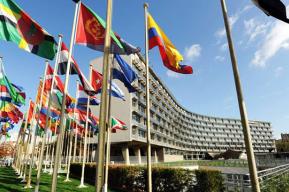
Shutterstock.com
Shutterstock.com
Water security
Freshwater is the most important resource for humankind, cross-cutting all social, economic and environmental activities. It is a condition for all life on our planet, an enabling or limiting factor for any social and technological development, a possible source of welfare or misery, cooperation or conflict.
To achieve water security, we must protect vulnerable water systems, mitigate the impacts of water-related hazards such as floods and droughts, safeguard access to water functions and services and manage water resources in an integrated and equitable manner.
UNESCO works to build the scientific knowledge base to help countries manage their water resources in a sustainable way through the Intergovernmental Hydrological Programme (IHP) and the World Water Assessment Programme (WWAP), through leading the UN-wide World Water Development Report and through numerous Centres and Chairs on water around the world.
UNESCO's expertise
With over 50 year of experience in water sciences, UNESCO supports Member States to better understand and manage water resources sustainably, and to achieve SDG 6, through two international programmes
Events
Publications
The United Nations World Water Development Report 2024: water for prosperity and peace
2024

Strategic Plan of the Intergovernmental Hydrological Programme: Science for a Water Secure World in a Changing Environment, ninth phase (IHP-IX, 2022-2029)
2022
UNESCO

Gender-responsive indicators for water assessment, monitoring and reporting
2019
UNESCO

Transboundary Aquifers: Challenges and the way forward
2022
UNESCO












